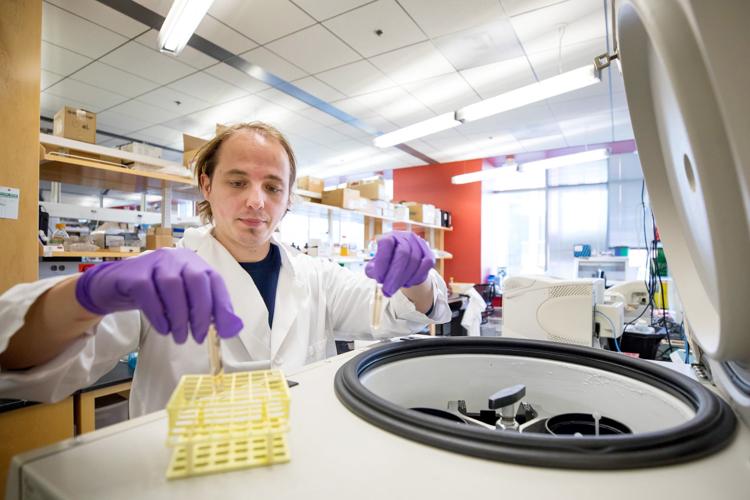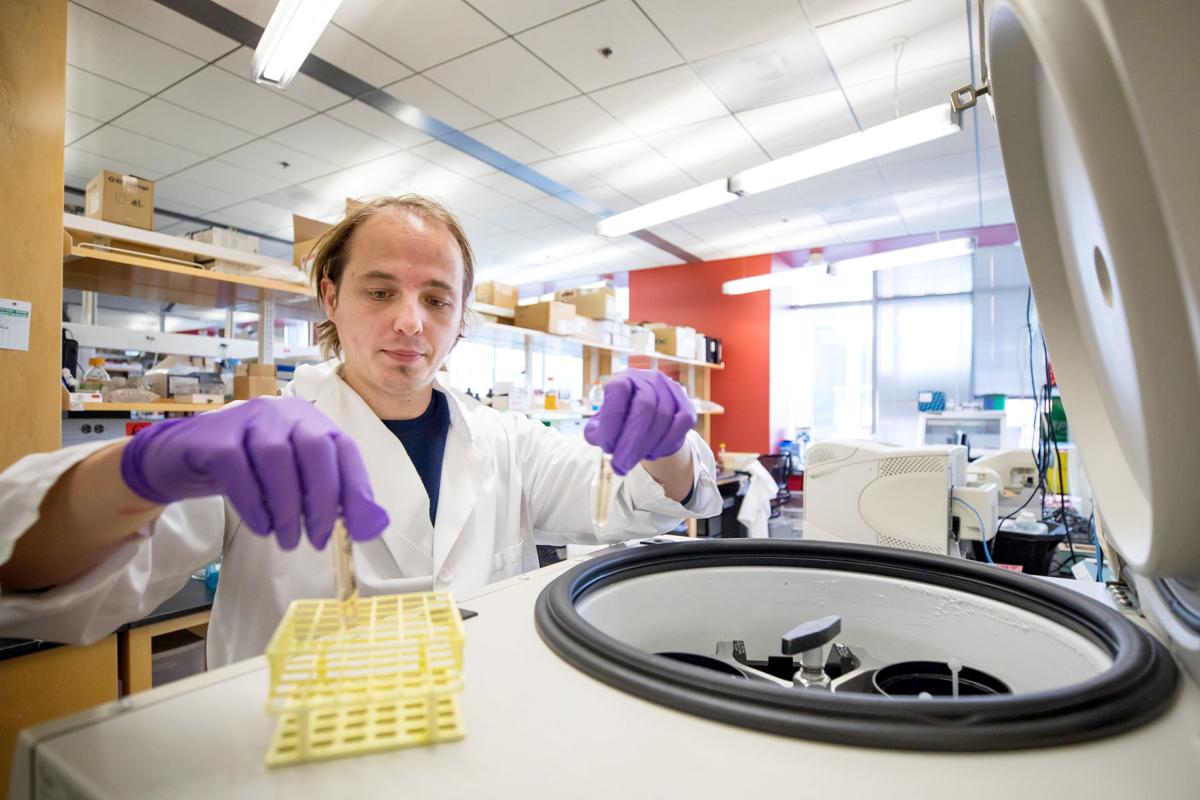Internationally distinguished immunologist Dr. Janko Nikolich-Zugich, co-director of the UA Center on Aging, received a $4.5 million federal award to study how stress on our immune system can impact how we age.
The award is from the National Institutes of Health and covers a decade of research with the study receiving about $450,000 a year, said Nikolich-Zugich, a physician-scientist who is head of the University of Arizona’s department of immunobiology.
He and his team of researchers will study how common infectious, psychological and physical stressors affect a person’s immunity, lifespan and the aging process using mice.
Some 200 mice will be used each year in the research, and domestic mice will be co-mingled with laboratory mice to make the study realistic.
He explained that lab mice are “ultra clean” and that “their housing is super clean and controlled, they don’t have infections and they really don’t have any stress in life — like running away from cats or snakes.”
“Our mouse subjects need to more closely mimic regular humans; humans get dirty, they get sick,” said Nikolich-Zugich. He said to replicate a more natural aging process, domestic mice will be co-housed with lab mice for a time.
“Mice from the wild carry with them a number of naturally-spread diseases and they will be infecting lab mice with their germs. This is similar to the human situation where we mingle with one another and also share germs,” Nikolich-Zugich said.
The domestic mice will then be removed from the study. The lab mice, which then will carry more natural microbes because of intermingling, will be the focus of the project.
Mice may be injected with stress hormones — mimicking real-life stressors — so the lab mice will age like domestic mice. Researchers hope to learn how these stressors impact the mice’s immune system over time.
They also will receive low-level radiation stress, comparable to going to a dentist for X-rays or undergoing a CT scan, Nikolich-Zugich said. The experiment may be designed to put the mice with larger mice, and that would simulate social aggression.
Researchers also will study mice that carry the cytomegalovirus, or CMV, which affects more than half of all humans and is contracted mostly at a young age.
This virus is a cousin of the herpes simplex virus, or HSV-1, that causes cold sores.
CMV remains dormant for most of a person’s life and does not cause outward symptoms, unless a person’s immune system fails.
The study will examine if the virus makes the heart and blood vessels weaker, or if findings show that it may make a person stronger because it guards them from other infections, said Nikolich-Zugich.
He said psychological, family and work stressors and the aging process can naturally reactivate the virus in humans, which can attack major organs.
By studying domestic mice with, and without CMV, the team hopes to understand exactly how the virus affects health late in life.
UA President Robert C. Robbins said in a news release that the award to Nikolich-Zugich and the team of researchers “is a true testament to how University of Arizona faculty members are at the forefront of research to understand our biggest challenges in human health and health care.”
“Learning more about the aging process is an important strategic focus for the university’s future. I believe they will help us learn a great deal more about how we can live longer, healthier lives,” said Robbins.







